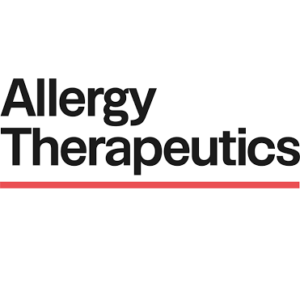Commenting on the CTA approval, Manuel Llobet, Chief Executive Officer of Allergy Therapeutics LON:AGY, said: “By using the successful biodegradable adjuvant system of MCT(R) and MPL, integral in our seasonal marketed vaccines, in a perennial house dust mite vaccine, we aim to improve both safety and efficacy for the thousands of patients who suffer year-round due to house dust mite allergy. Acarovac Quattro will provide convenience to our patients and doctors and more efficient pharmacoeconomics. Effectively, the dosing regime in Acarovac Quattro has the potential to improve the convenience, adherence and compliance that is essential for a successful treatment, and builds on the acceptance of the existing Acarovac Plus platform.”
Allergy Therapeutics (LON:AGY), the fully integrated specialty pharmaceutical company specialising in allergy vaccines, today told DirectorsTalk that the Phase I clinical study investigating the safety and tolerability of Acarovac MPL (monophosphoryl lipid A) has received Clinical Trial Application (CTA) approval in Spain.
House dust mites are a major cause of perennial allergic rhinitis and allergic asthma(1) . Acarovac MPL builds on the strong foundation of technologies employed in the successful Pollinex(R) Quattro range of subcutaneous allergy immunotherapies, and builds on the demonstrated efficacy(2) of the existing successful product platform of Acarovac Plus(TM) , the fastest growing “named-patient product” in Allergy Therapeutics’ Spanish subsidiary. Acarovac MPL is the only house-dust mite immunotherapy in development utilising MCT(R) (microcrystalline tyrosine), a natural, biodegradable depot, and the adjuvant MPL for the treatment of perennial allergic rhinitis making this vaccine unique in a $1.5 billion per annum market(3) .
CTA approval has been granted and the Company now expects this formulation to begin Phase I studies immediately, to assess the safety and tolerability of two different dose regimens. Both treatment regimens include a two-to-four week initial up-dosing phase but differ in the duration of the later maintenance phase. The Phase I trial of 32 patients is expected to last one year, and to be delivered on-time in-line with the Company’s stated strategic plan when funding the programme in November 2015. If the Phase I trial is successful, the Company expects to launch Acarovac MPL in Spain on a named-patient basis.


